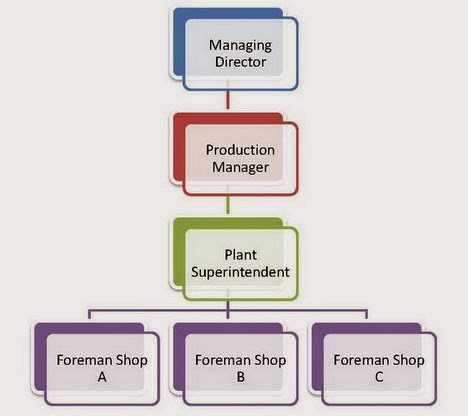 Knowledge of Management
Knowledge of Management Knowledge is a familiarity with someone or something, that can include information, descriptions, facts, skills acquired through experience or education. It can refer to both the theoretical or practical understanding of a subject. It can be implicit (as with practical skill or expertise) or explicit (as with the theoretical understanding of a subject) and it can be more or less formal or systematic. It
Definition Knowledge Management comprises a range of strategies and practices used in an organization to identify, create, represent, distribute and enable adoption of insights and experiences. Such insights and experiences comprise knowledge, either embodied in individuals or embedded in organizational processes or practice. Knowledge Management can transform an organization to new levels of effectiveness, efficiency and scope of operation. Through advancements in technology, data and information are readily available.
According to Avad and Ghazari: Knowledge management is the process of gathering and making use of collective expertise anywhere in business.
Importance if Knowledge ManagementKnowledge Management has been recognized as an essential component of a proactively managed organization. Several factors that contribute to the importance of managing knowledge are referenced below: An organization is a complex system that consists of both people and processes. As such, knowledge management identifies people working for the organization, and procedures and information systems that drive people's actions. Importance of knowledge management can be explained as follow.
1.Adapt organizational change: An organization's ability to create, acquire, process, maintain and retain old and new knowledge in the face of complexity, uncertainty and rapid change is critical.
2.Enhanced decision-making: Learning from and applying past experiences can accelerate the completion of future work and enhance the decision making process.
3. Competitive advantage: Knowledge can be an organization's most competitive advantage. Because of the tremendous advances in technology, enormous amounts of information can be disseminated to people regardless of their geographic location or time zone. Wealth results when an organization uses its knowledge to create customer value by addressing business problems. "A firm's competitive advantages depends more than anything on its knowledge, or to be slightly more specific, on what it knows-- how it uses what it knows- and how fast it can know something new".
4.Production of knowledge: Most of the organization are focused on producing a product or service for customers. However, one of the most significant keys to value-creation comes from placing emphasis on producing knowledge. KM process facilliates to acquire knowledge in an organization.
5.Transfers knowledge among the employee: Knowledge management ensures that every piece of knowledge and information is shared amongst all employees in organization. Further, it also seeks to transfer the knowledge to new members entering the company that will benefit the organization as a whole.
6.Updated knowledge of technology: From a knowledge management perspective, the complexities associated with technological changes will be removed. Competitive Advantages- The speed of transmission and frequency in which this information is received requires an adaptable, skilled and educated workforce.
7.Recruiting right individuals: With the utilization of knowledge management, an organization can recruit the right individuals who can provide their right expertise and insight about improving or focusing better on its processes. This knowledge can be shared within the organizational to complete a delegated task or project with greatest efficiency.
Knowledge Management ProcessKnowledge management is the concept of taking data and turning it into useful and applicable knowledge in a business environment.There is no single and specific way to obtain knowledge. The knowledge management process can have a few steps which is presented below:
 1. Data capture:
1. Data capture: Raw data must be collected somehow before it can be turned into knowledge, or wisdom as the last step in the process is often called.
2. Data storage: There has to be a place to keep the collected information. Data storage for most businesses and even individuals today is digital, but even a filling cabinet is a data storage solution.
3. Data organization: Once the data is collected it has to be organized into some kind if a useful structure. For instance, a piece of paper that contains raw data like sales figures numbers, number of employees, prices of products, employee attendence numbers and last quarter's profit is full of raw data, but it's a collection that's not organized and can't be easily used in this format.
4. Data analyzes: Organization can analyzes the organized data as per requirement of decision makers. Once the data is analyzed, then it's more likely to be knowledge than just raw information because the way the information works together and things like cause and effect become more obvious. This turns the information into useful knowledge.
5. Knowledge sharing: At this point, the raw data has become useful knowledge or wisdom. While this is an improvement over raw, unorganized data, its necessary to determine the best way to share this wisdom with employees. It is used to reach organizational goals.
is accumulation of facts, rules, procedures and experiences. In modern organization it is treated as intellectual capital. Knowledge management is a concept in which an organization consciously and comprehensively gathers, organizes, shares and analyzes its knowledge in terms of resources, document and people skills. Knowledge Management addresses business challenges and enhances customer responsiveness by creating and delivering innovative products or services; managing or enhancing relationships with existing and new customers, partners and suppliers; and administering or improving more efficient and effective work practices and processes. Effective solutions are aligned with the organization's business strategy and result in enhanced individual and organizational performance. The modern business manager is to be able to discover and learn new measures, technologies and opportunities but this requires the ability to gather information in usable formats and disseminate knowledge to achieve the organization's objectives.
If your find this article helpful then please let me know through comment and if you want any other information related to this topic then please comment. And also you can visit my https://bizmgnt.blogspot.com/to know more about related topic.






Comments
Post a Comment